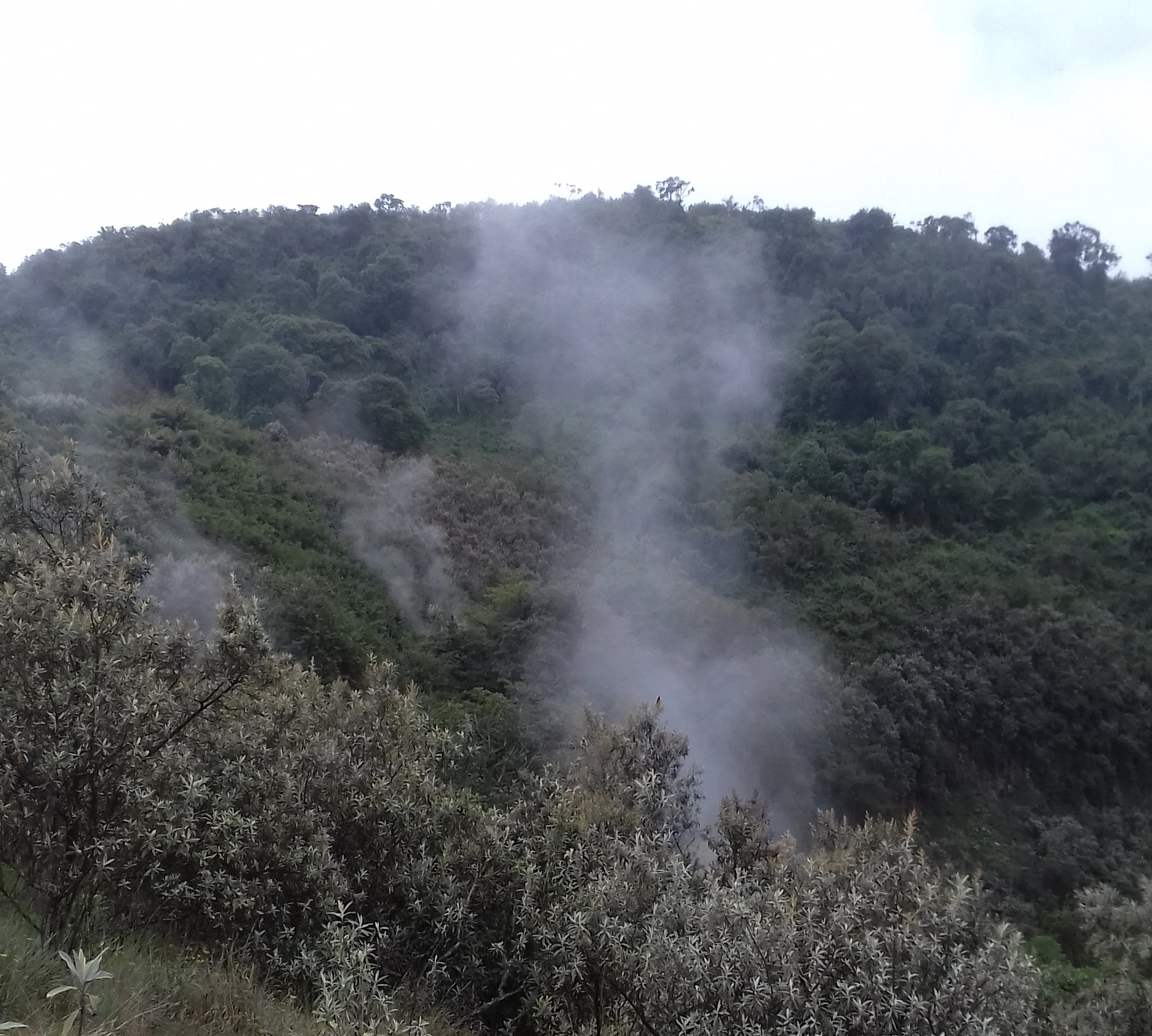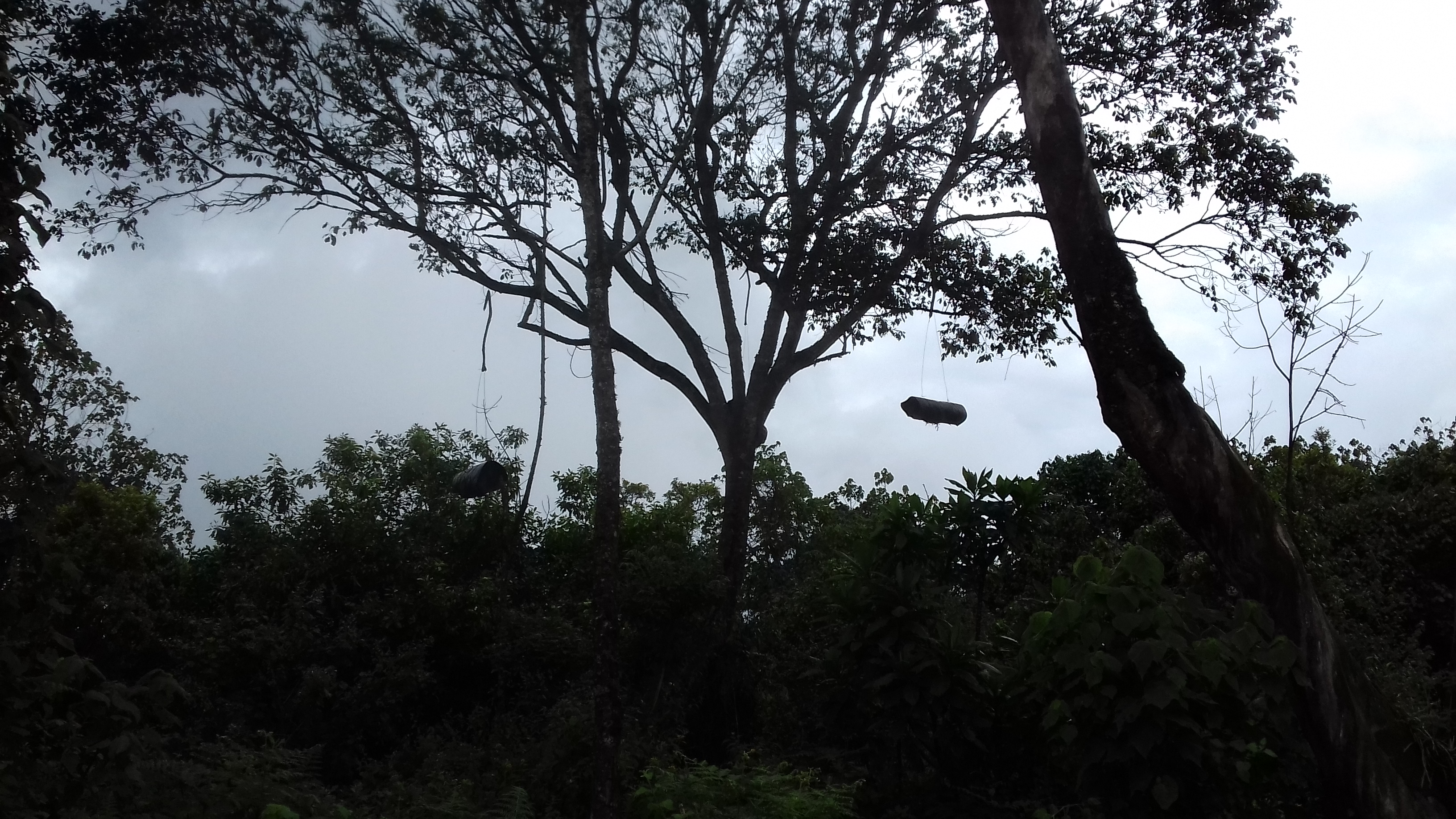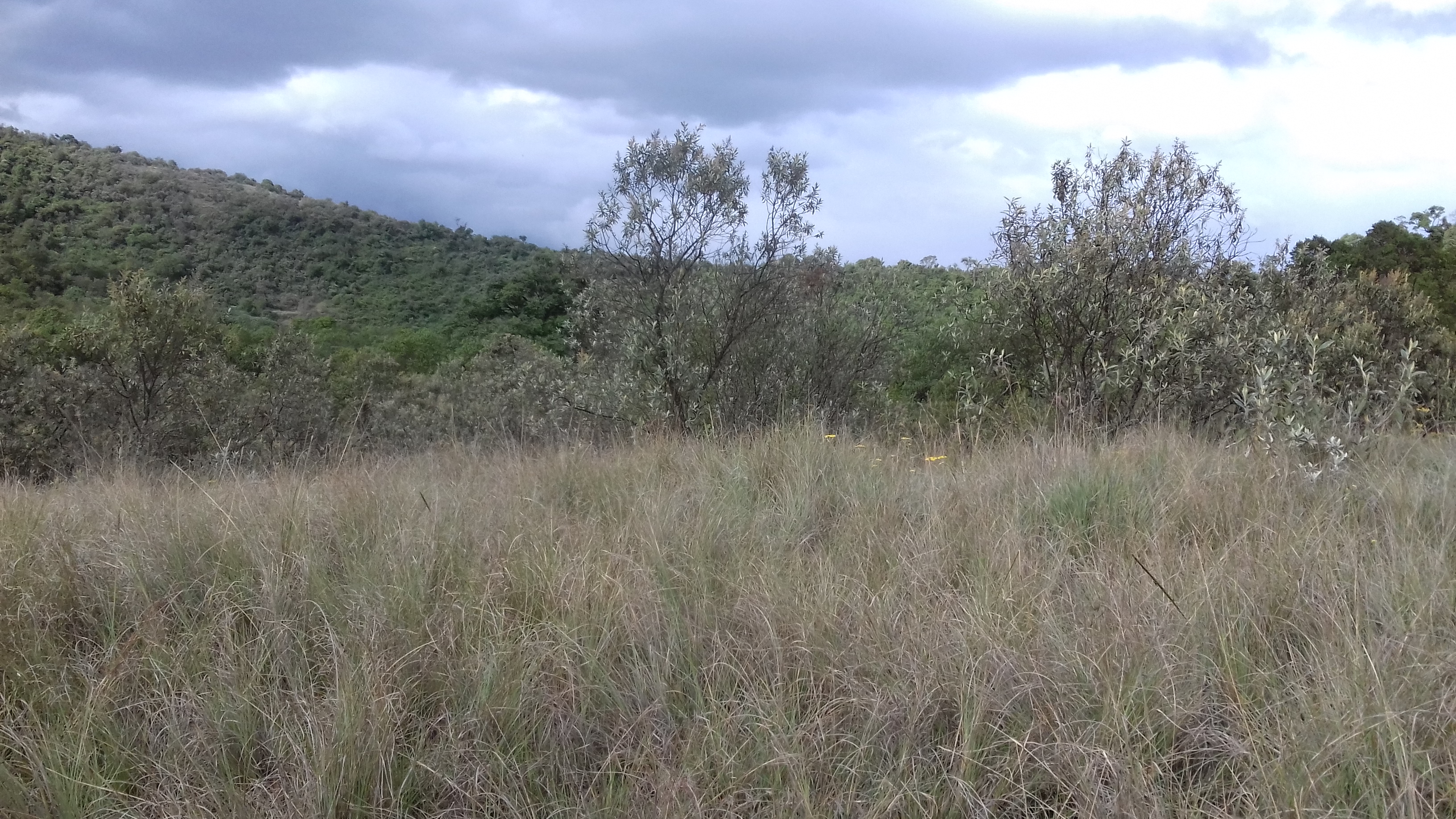When I left the house it was raining, and I couldn’t see whether the burst sewer line was leaking onto the road. I also couldn’t smell the sewer stuff because the rain was washing it away. I walked carefully, hoping not to step in whatever muck may have been around.
I had reserved this trip to Eburu Forest at the last minute because I’d been vexed for days—walking in the forest made more sense than lighting a fire and burning everything down. I got to the scheduled departure point and joined other members of the walking group, all nature lovers, all strangers. We watched the rain fall until it was time to leave for the walk.
There were about twenty five of us traveling in an overland truck. Leaving Nairobi early in the morning was easy because the roads were empty. It continued to rain. In Limuru, we passed tethered sheep, leaning against trees and walls, unable to shelter from the rain.
I worried that if it was also raining in Eburu Forest, our hike would be more difficult. We stopped at the Delamare Petrol Station in Naivasha, where it was still raining. They sell toilet paper for ten shillings outside the toilets. I wondered how they decided the ideal quantity of toilet paper a person needed to have. I got tea at the shop and then got back in the truck. It continued to rain until we got to Gilgil, where the ground was dry as if it hadn’t rained at all, and then we proceeded to Nakuru where Eburu Forest is located.

About three hours after we left Nairobi, as we approached the forest, we could see smoke on some of the hills. We drove past the Eburu Power Station and saw the smoke was steam coming out of holes that had been drilled in the ground. Geothermal energy sounds very impressive when you read about it; in reality, it’s steam coming out of holes in the ground.
While traveling from Nairobi, we had discussed how excited we were to see the mountain bongo, a critically endangered antelope. But the first thing the Kenya Forest Service officer on duty told us is that we wouldn’t see the bongos because they are shy and come out early in the morning and late afternoon. He said, though, that we might see buffalos, colobus monkeys, and lots of birds.
We started the trek as one group, and then gradually separated into three groups, one led by a Kenya Forest officer, another by our Nairobi tour guide, and the final one by a local resident. I was in the group led by the local. Our guides warned us that the forest has lots of stinging nettle and advised us not to touch them.
We stopped and stared at the Hartlaub’s turaco in a tree but I wasn’t so interested in the birds. I just wanted to walk. We walked on a road and then moved to knee length grass. I asked the tour guide whether there were snakes in the grass—I had not escaped the burst sewer outside my house to be bitten by a snake! I was assured that snakes don’t like cold places. It was cold. It was so cold that the guide led us down a short slope toward a hot spring. We enjoyed the steam on our faces and hands. The novelty wore off after about 5 minutes.
We climbed back up the slope and kept walking. We stopped for a quick lunch break. During the break, I found out that our guides had cancelled a trip to nearby waterfalls because so many of us looked old and unfit. It would have been an extra one and a half hour walk. I hadn’t known about the waterfalls.
One of the guides covered his shoulders with the red shuka that’s associated with the Maasai community. Someone asked him about his cows. It was just the sort of question tourists ask. He said that he doesn’t have cows. When he was pushed to explain how this was possible, he said, “Niko na mizinga.” What I heard was, “I have booze,” because mizinga is also the Swahili word for keg. He meant he had beehives.

Just before we got back to the truck, I joined two people who were looking for a jasmine plant they’d seen earlier. I wanted to see it because they said it could be used to poison humans. We found it and took pictures of it. I thought about carrying samples, but I didn’t.
We left the forest late in the afternoon, without having seen any mountain bongo. On the way back to Nairobi, we drove past zebras still grazing in open fields and alongside irrigated farm land. We saw what looked like a dikdik to me but someone said it was a suni antelope. If we had been less tired there would have been a big argument. Later it came up in conversation that based on the landscape and the trees growing around that place, that had to be a suni antelope. I conceded wearily.
We arrived at our original departure point three hours after we left the forest. I shared an Uber with one of the hikers. I forgot to hold my breath when I got home but it was fine because I couldn’t smell the sewage. Maybe it was fixed while I was away.
Lutivini Majanja





